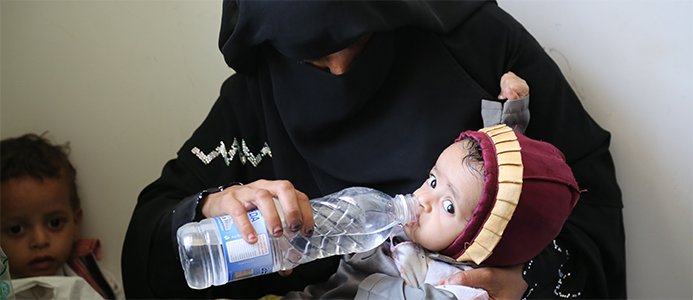The Commission is allocating €25 million in humanitarian funding from its Solidarity Emergency Aid Reserve to fight hunger in Afghanistan. Urgent actions to save lives and livelihoods are required due to a drought that is currently affecting Afghanistan, leaving at least 11 million people in a food crisis, and 3.2 million people in a food emergency.
Janez Lenarčič, Commissioner for Crisis Management said: “In 2021, half of the population in Afghanistan is expected to suffer from acute food insecurity. The drought affecting the country is worsening an already dire situation with political insecurity and conflict, as well as the current strong third wave of the COVID-19 pandemic. The food shortage and limited water availability will increase the prevalence of severe malnutrition. In response, the EU is mobilising humanitarian support to help alleviate hunger.”
The latest EU funding to Afghanistan comes in addition to the EU’s initial allocation of €32 million humanitarian aid for Afghanistan in 2021.
The funding will support activities that contribute to addressing the increased needs stemming from drought, including the sectors of food assistance, nutrition, health, water-sanitation-hygiene, and support to humanitarian logistics.
All EU humanitarian assistance is delivered in partnership with UN agencies, International Organisations, and NGOs. It is provided in line with the humanitarian principles of humanity, neutrality, impartiality, and independence, to benefit directly the people in need across the country.
Afghanistan suffers from one of the world’s largest food crises. The drought currently affecting Afghanistan is linked to the La Niña climatic phenomenon and further exacerbates the risk of flooding, with soils too dry to absorb melting snow or rain later in the year.
As there is a strong correlation between areas affected by the drought and further food insecurity, severe acute malnutrition of the population is increasing. The wheat crops are at risk, and livestock threatened, which will have a strong impact on food availability and livelihoods.
On 22 June 2021, the government of Afghanistan officially declared the drought in the country. The nutritional status of children under 5 continues to deteriorate, with 27 out of 34 provinces now above the emergency threshold for acute malnutrition. This makes the continuation of life-saving severe acute malnutrition services critical.
In addition, Afghanistan is affected by one of the deadliest conflicts worldwide while simultaneously being a disaster-prone country affected by floods, flash-floods and earthquakes, leaving the country with a high level of urgent humanitarian needs. Further, Afghanistan is going through a massive third wave of the COVID-19 pandemic, with an average of 2,000 new infections per day.
EU humanitarian aid responds to Afghanistan’s needs by giving life-saving assistance in solidarity with those affected. Since 1994 the EU has mobilised over €1 billion in humanitarian funding to Afghanistan.
The support ensures critical relief assistance to the most vulnerable, including the victims of war, forced displacement, and natural hazards. Interventions will continue to provide emergency healthcare, shelter, food assistance, access to clean water and sanitation facilities, education in emergencies, and various protection services targeting women and children.













